Filter by
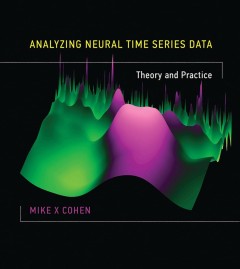
Analyzing Neural Time Series Data: Theory and Practice
"This book offers a comprehensive guide to the theory and practice of analyzing electrical brain signals. It explains the conceptual, mathematical, and implementational (via Matlab programming) aspects of time-, time-frequency- and synchronization-based analyses of magnetoencephalography (MEG), electroencephalography (EEG), and local field potential (LFP) recordings from humans and nonhuman ani…
- Edition
- -
- ISBN/ISSN
- 9780262319553
- Collation
- 1 online resource (xviii, 578 pages, 16 unnumbered pages of plates) :illustrations.
- Series Title
- -
- Call Number
- -
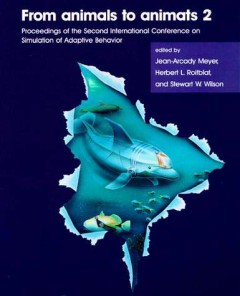
From Animals to Animats 2: Proceedings of the Second International Conference…
"A Bradford book."More than sixty contributions in From Animals to Animats2 by researchers in ethology, ecology, cybernetics, artificial intelligence, robotics, and related fields investigate behaviors and the underlying mechanisms that allow animals and, potentially, robots to adapt and survive in uncertain environments. Jean-Arcady Meyer is Director of Research, CNRS, Paris. Herbert L. Roitbl…
- Edition
- -
- ISBN/ISSN
- 9780262287159
- Collation
- 1 online resource (x, 523 pages) :illustrations.
- Series Title
- -
- Call Number
- -

From Animals to Animats 4: Proceedings of the Fourth International Conference…
"A Bradford book."The Animals to Animats Conference brings together researchers from ethology, psychology, ecology, artificial intelligence, artificial life, robotics, engineering, and related fields to further understanding of the behaviors and underlying mechanisms that allow natural and synthetic agents (animats) to adapt and survive in uncertain environments. The work presented focuses on w…
- Edition
- -
- ISBN/ISSN
- 9780262291316
- Collation
- 1 online resource (xii, 644 pages) :illustrations.
- Series Title
- -
- Call Number
- -

From Animals to Animats 5: Proceedings of the Fifth International Conference …
"A Bradford book."The Animals to Animats Conference brings together researchers from ethology, psychology, ecology, artificial intelligence, artificial life, robotics, engineering, and related fields to further understanding of the behaviors and underlying mechanisms that allow natural and synthetic agents (animats) to adapt and survive in uncertain environments. The work presented focuses on w…
- Edition
- -
- ISBN/ISSN
- 9780262291385
- Collation
- 1 online resource (xvi, 564 pages) :illustrations.
- Series Title
- -
- Call Number
- -

From animals to animats 6: proceedings of the Sixth International Conference …
"A Bradford book."OCLC-licensed vendor bibliographic record.
- Edition
- -
- ISBN/ISSN
- 9780262316071
- Collation
- 1 online resource (xiii, 540 pages) :illustrations.
- Series Title
- -
- Call Number
- -

From Animals to Animats 7: Proceedings of the Seventh International Conferenc…
The Simulation of Adaptive Behavior Conference brings together researchers from ethology, psychology, ecology, artificial intelligence, artificial life, robotics, computer science, engineering, and related fields to further understanding of the behaviors and underlying mechanisms that allow adaptation and survival in uncertain environments. The work presented focuses on robotic and computationa…
- Edition
- -
- ISBN/ISSN
- 9780262316071
- Collation
- 1 online resource (xi, 420 pages) :illustrations
- Series Title
- -
- Call Number
- -

From Animals to Animats 8: Proceedings of the Eighth International Conference…
"A Bradford book."New research on the adaptive behavior of natural and synthetic agents.The biannual International Conference on the Simulation of Adaptive Behavior brings together researchers from ethology, psychology, ecology, artificial intelligence, artificial life, robotics, engineering, and related fields to advance the understanding of behaviors and underlying mechanisms that allow natur…
- Edition
- -
- ISBN/ISSN
- 9780262291446
- Collation
- 1 online resource (xi, 530 pages) :illustrations
- Series Title
- -
- Call Number
- -
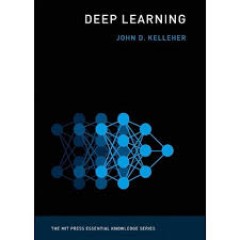
Deep learning
OCLC-licensed vendor bibliographic record.
- Edition
- -
- ISBN/ISSN
- 9780262354899
- Collation
- 1 online resource (272 pages).
- Series Title
- -
- Call Number
- -
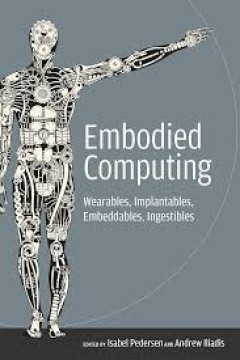
Embodied computing :wearables, implantables, embeddables, ingestibles
"Embodied technologies such as wearable tracking bracelets, ingestible sensors, embeddable prosthetics, and implantable microchips all stand to redefine the human experience and what it means to speak of technology and the body. No longer the speculative stuff of science fiction, embodied technologies have arrived and are being developed by a variety of industries at an alarming rate. Embodied …
- Edition
- -
- ISBN/ISSN
- 0262357798
- Collation
- 1 online resource.
- Series Title
- -
- Call Number
- -
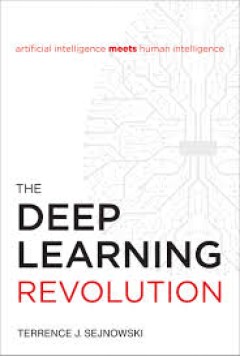
The deep learning revolution
How deep learning-from Google Translate to driverless cars to personal cognitive assistants-is changing our lives and transforming every sector of the economy. The deep learning revolution has brought us driverless cars, the greatly improved Google Translate, fluent conversations with Siri and Alexa, and enormous profits from automated trading on the New York Stock Exchange. Deep learning netwo…
- Edition
- -
- ISBN/ISSN
- 9780262346825
- Collation
- 1 online resource.
- Series Title
- -
- Call Number
- -
 Computer Science, Information & General Works
Computer Science, Information & General Works  Philosophy & Psychology
Philosophy & Psychology  Religion
Religion  Social Sciences
Social Sciences  Language
Language  Pure Science
Pure Science  Applied Sciences
Applied Sciences  Art & Recreation
Art & Recreation  Literature
Literature  History & Geography
History & Geography